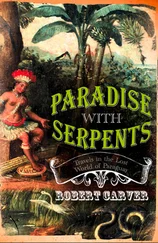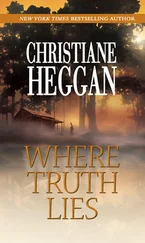I monitor Ardith’s voice for every nuance and subtlety, every shading and slant. It’s a sweet, low, calm voice — she used to read radio commercials years ago — but it sends a buzz of nerves through my body like it came from a wall socket. We were married ten years and ten years is a long time. It was a good marriage. When Matthew died it collapsed, like a building with dynamite in the foundation. We were the walls. She fell toward me and I fell toward her and we missed. If we hadn’t, maybe the building would have stayed up somehow. She held me solely and fully responsible for what happened to Matt. I did, too, but for different reasons. You don’t continue to live with a person under those conditions. You have to get away. At least I did.
We had different ideas on how to raise our son. It was always something like this—
If we went to the mountains Ardith would worry about the bears eating Matthew.
I’d say, The bears won’t eat Matt. He’s too bony.
If we went to Mexico Ardith would worry about him being stolen and sold as a blue-eyed gringo.
I’d say, Maybe they’ll pay for his college.
If we went to the desert she’d worry about rattlesnakes.
I’d say, Don’t worry, he’s too big to eat.
If we went to the beach she’d worry about the sharks.
I’d say, That kid could outswim any shark.
She thought he was doomed for tragedy and I thought he was invincible. Now I guess I agree with her.
So fuck me, and fuck the way I was.
“Work go okay this week?” I asked.
“Um-hm,” she said. “The world still loves Southern California. I don’t know why.”
“How’d the Mitsubishi guys go?”
“All they wanted to do was play golf.”
“I guess that was easy to arrange.”
“Oh, yes. You?”
“That guy took another girl. We got her back today, more or less okay.”
“I’ve been seeing the news. Made me wish you’d catch up with him and shoot him about a hundred times.”
“I’ve had that pleasant daydream, too.”
“All the things that can happen to children in this world, and there’s somebody out there, doing that. I just don’t understand.”
“They’re different than the rest of us.”
She didn’t say it — she never would — but I knew what she was thinking: and you feel just a little bit sorry for them, don’t you, Terry?
I took the spray bottle and paper towels back to the car. I got out the big old beach towel and walked back to the grave with it, unfolded and spread it out on the grass. It’s a faded blue one, with seahorses and starfish and little holes. The thing about this cemetery is, to sit on the grass next to your loved one, you have to sit on someone else. You’d have to stay directly in front of the stone to observe the property lines. But then you’d be sitting on Matthew’s chest, I guess. Anyway, we always sit at opposite ends of the towel. The red stone is in front of us, then the smooth green grass sloping away, dotted with flower arrangements. Beyond the grass you can see the city reservoir of still gray water mirrored with clouds, then the proud towers of Newport Center — expensive stores, corporate this and that — then the ocean, way out to the sky. It’s a good place to think about living and dying.
Ardith and I meet here almost every week. Some Fridays she’ll miss and some I will. It didn’t start out that way. About six months after Matt was buried — three months after I moved out of the house — we just happened to be here at the same time. It was excruciatingly difficult to be around her then. Independently, we’d decided that Friday afternoons would be our time to visit, and neither one of us would back down. Sticking to our guns, no matter how vague or even destructive they might be, is something we’ve both always been good at. And through our stubbornness came an accommodation that seems to be necessary for both of us, though necessary for reasons I only partially understand. For me, seeing Ardith reminds me, fully and honestly, of what I did to her son. One of the things I come here for is an outside shot at her forgiveness. For her, I can’t say exactly why she comes, but I think it has something to do with wanting to forgive me, which she can’t She can’t because to do it, she’d have to admit that she blames me for Matthew. She’s never admitted that, but she believes it I will and I do. But we still show up, most Fridays, knowing full well who’s on the guest list.
A lot of it is just small talk.
I remarked about the weather.
She told me about her car.
I asked if her homeowners’ insurance had paid out.
Our home — now Ardith’s home — was burglarized a few months ago and she’s had problems collecting. They took some costume jewelry and a clock radio, and that was about it.
The insurance had finally paid up.
I asked about her photography, which is one of Ardith’s loves from college years, and she said she hadn’t shot much lately. She takes great pictures, lots of mood and emotion in them.
“I get out the old albums sometimes,” she said. “All that stuff of you and Matt. Some of it’s quite beautiful. But all of it makes me cry.”
Those pictures — Matt and I wrestling on the floor, Matt and I goofing at the beach, Matt and I doing you name it — would have made me cry, too. Ardith seemed to follow us around with her camera for every one of those five short years.
Small talk has a way of getting bigger when you’ve been through the things that Ardith and I have been through. This time, she changed the subject.
“Did you see the notice this mortuary ran in the paper?”
“Yeah. I called. They said they were computerizing their list of ‘property owners.’ Said not to worry.”
“Well, they told me the same thing, so I worried. I thought about that cemetery up in L.A. County, where they just dug up the old ones and cremated them, then sold the plots to new people.”
“I don’t think they’ll try that here,” I said.
“Why wouldn’t they?”
“Because if they do, we’ll see the earth has been disturbed and I’ll personally throw each and every one of them in jail.”
“You tell them that on the phone?”
“In fact, I did.”
“Good.”
I reached into my jacket pocket and brought out the flask of Herradura I keep in the trunk of the car, along with the spray bottle, paper and beach towel. Jordan Ishmael looked into the trunk one day and saw the box and what was in it, and because it’s a county sedan, he had to say something about lugging around personal stuff. I told him the towel was for my son and the tequila was for his ex-wife and that shut him up. As I took a pull on the liquor I thought back to the bizarre expression on Ishmael’s face at the station just a few hours ago. I thought of the look on Frances’s face, too, the day before. Same look, I thought: confused and pissed off and frightened and utterly bloodthirsty. You’d think I’d have better things to remember with the remains of my son just a few feet away.
I offered her the flask and she took a sip.
“Still blacking out on this stuff?”
“No. I’ve cut back a lot.”
“Those were some scary times.”
“Dumb.”
She handed back the flask. “You’re not built for booze. It just takes too much to put you down where you like to be.”
“I really don’t want to be there anymore. I nip maybe a half pint a night now, usually less. Maybe a beer or two.”
“That’s still an awful lot of booze.”
“A little less every week. I’m going to be okay with it, Ardith.”
“You’re not going to be young forever.”
“I’m not even young now.”
“You still go to that cave? Drink and smoke and sleep it off?”
Читать дальше
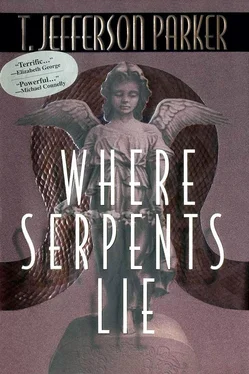


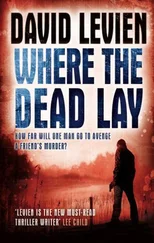
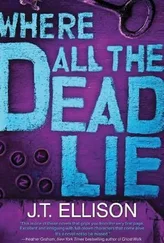

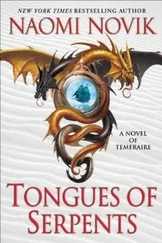

![Джеффри Дивер - Where the Evidence Lies [A Lincoln Rhyme Short Story]](/books/403782/dzheffri-diver-where-the-evidence-lies-a-lincoln-r-thumb.webp)

